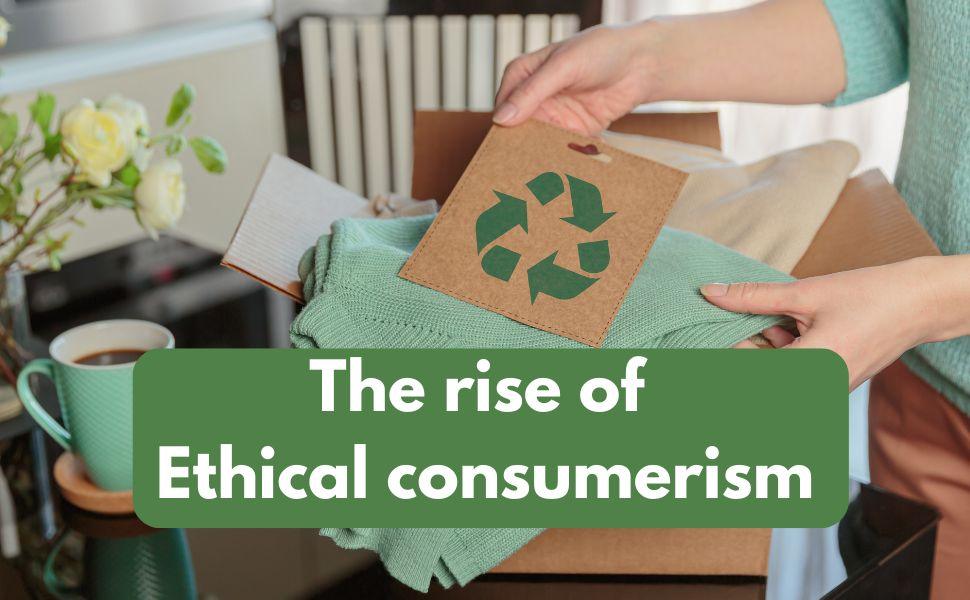In recent years, consumer behavior has undergone a profound transformation. The rise of conscious consumerism has reshaped the marketplace, with shoppers increasingly prioritizing ethical, sustainable, and socially responsible choices. This movement reflects a growing awareness that spending habits can be a powerful tool for driving positive change in the world.

What Is Conscious Consumerism?
Conscious consumerism is a movement where individuals make purchasing decisions based on their values and ethical considerations. It goes beyond traditional factors like price and quality, focusing on the environmental, social, and ethical impact of products and services. Modern consumers are asking questions such as:
- Is this product sustainably sourced?
- Does the company follow fair labor practices?
- What is the environmental footprint of this purchase?
This shift has created a new paradigm in shopping, where every dollar spent acts as a vote for companies that align with the consumer’s values.
Drivers of Conscious Consumerism
Several factors have contributed to the rise of ethical consumer choices:
- Climate Change Awareness: Concerns about global warming and environmental degradation have motivated consumers to seek eco-friendly products. Items with certifications like organic, fair trade, or cruelty-free are increasingly popular.
- Social Justice Movements: Issues like labor exploitation, gender equality, and racial equity have influenced buying patterns. Consumers want to support businesses that champion inclusivity and fairness.
- Technological Transparency: With access to information online, consumers can easily research brands’ practices. Transparency in supply chains and corporate policies is now a key expectation.
- Economic Shifts: Inflation and economic uncertainty have prompted people to rethink their consumption habits. Many are choosing quality over quantity or opting for second-hand goods to reduce waste.
Impact on Industries
The rise of conscious consumerism is forcing industries to adapt in significant ways:
1. Ethical Fashion
The fashion industry has been under scrutiny for its environmental impact and exploitative labor practices. Ethical fashion brands are now gaining traction by using sustainable materials like hemp or Piñatex (pineapple leather) and promoting fair trade manufacturing processes.
2. Sustainable Tech
The electronics industry is shifting toward eco-friendly innovations. Companies integrate renewable energy into their devices, while others focus on repairable and modular designs to reduce e-waste.
3. Food and Beverage
Demand for organic, locally sourced, and fair trade food products is growing rapidly. Consumers are gravitating toward brands that prioritize sustainability in farming practices and packaging.
4. Ethical Jewelry
Lab-created diamonds are disrupting the jewelry market by offering sustainable alternatives to traditional mining practices, which often involve environmental destruction and human rights violations.
Challenges for Businesses
While conscious consumerism presents opportunities for growth, it also comes with challenges:
- Balancing Costs: Sustainable practices often require higher upfront investments, which can lead to increased product prices. Businesses must find ways to balance affordability with ethical production.
- Greenwashing Risks: Some companies falsely claim sustainability to attract conscious consumers—a practice known as greenwashing. This can damage brand credibility if exposed.
- Supply Chain Complexity: Ensuring ethical standards across global supply chains is challenging but essential for maintaining trust among consumers.
- Consumer Dilemmas: Inflationary pressures sometimes conflict with ethical choices; many consumers struggle to afford sustainable products despite their intentions.
How Businesses Can Adapt
To thrive in this new era of conscious consumerism, companies must embrace authenticity and purpose-driven strategies:
- Transparency: Clearly communicate sourcing practices, sustainability efforts, and social impact initiatives.
- Certifications: Obtain credible certifications like Fair Trade or Rainforest Alliance to build trust.
- Community Engagement: Partner with non-profits or local organizations to demonstrate commitment to social causes.
- Sustainable Innovation: Invest in eco-friendly technologies and materials that align with consumer values.
- Education: Help consumers understand the benefits of ethical choices through marketing campaigns and storytelling.
The Role of Governments
Governments play a crucial role in supporting conscious consumerism through policies such as:
- Subsidizing sustainable goods to make them more affordable.
- Taxing environmentally harmful industries like fossil fuels.
- Encouraging eco-friendly commuting options.
- Promoting transparency regulations for businesses.
Such measures can bridge the gap between consumer intentions and practical affordability while driving systemic change across industries.
Conclusion
Conscious consumerism is more than just a trend—it’s a fundamental shift in how people view their purchasing power as a tool for change. As consumers demand greater accountability from businesses, industries must adapt by embracing sustainability, transparency, and social responsibility at their core. By aligning with these values, companies can not only remain competitive but also contribute meaningfully to creating a better world for future generations.
